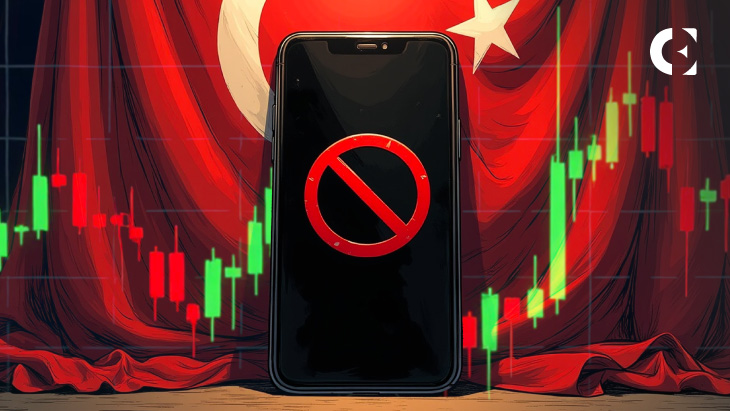- Turkey’s financial regulator, the CMB, has blocked access to 46 crypto platforms, including PancakeSwap
- This is the first time Turkish authorities have formally blocked a major decentralized exchange (DEX)
- The action was enabled by new laws passed in 2025 that give the CMB expanded power over the sector
Turkey’s financial regulator has blocked access to 46 unauthorized cryptocurrency service providers, including the major decentralized exchange (DEX) PancakeSwap. The enforcement action, announced by the Capital Markets Board (CMB), comes as Turkey intensifies control of its digital asset sector following new regulatory powers introduced earlier this year.
The Capital Markets Board (CMB) confirmed on Thursday it had initiated legal proceedings against the group of platforms for operating in violation of Turkey’s Capital Markets Law. This is the first time Turkish authorities have formally blocked a decentralized finance (DeFi) platform of PancakeSwap’s size.
A Major DEX Blocked Under New Powers
Blocking PancakeSwap is a major step for regulators. The platform is one of the largest DEXs in the world, processing over $325 billion in trading volume in June alone. The CMB identified the platform as lacking the necessary licenses now required under Turkish law.
In March, the CMB received expanded authority to oversee digital asset markets more broadly. This included the ability to restrict access to platforms not registered with Turkish regulators. The new legal system allows the CMB to block unlicensed foreign entities targeting Turkish users, a major provision that enabled this latest round of enforcement.
Related: Turkey Prepares Stricter Crypto Regulations to Combat Financial Crime
On June 28, Turkey published new rules in the Official Gazette, strengthening its regulatory infrastructure for cryptocurrencies. The changes were introduced under Law No. 5549 and included new transfer limits, mandatory waiting periods, and enhanced anti-money laundering (AML) requirements. These provisions grant the CMB tools to tighten compliance checks across both domestic and foreign platforms.
The Goal: Tighter Control Over the Crypto Market
The action is part of the Turkish government’s strategy to increase transparency and tighten its control over the country’s large and active crypto market. While the CMB did not publish the detailed criteria used to identify the 46 non-compliant platforms, the move aligns with its stated goals of reducing financial risks and improving investor protection.
Related: Turkey Rolls Out Tougher Crypto Rules to Prevent Money Laundering and Terrorism Financing
The new regulations are designed to bring Turkey into alignment with global financial standards. As of early July, access blocks are in place for all 46 websites. The CMB has not yet commented on whether other major decentralized exchanges will be subject to similar bans in the future.
Disclaimer: The information presented in this article is for informational and educational purposes only. The article does not constitute financial advice or advice of any kind. Coin Edition is not responsible for any losses incurred as a result of the utilization of content, products, or services mentioned. Readers are advised to exercise caution before taking any action related to the company.







